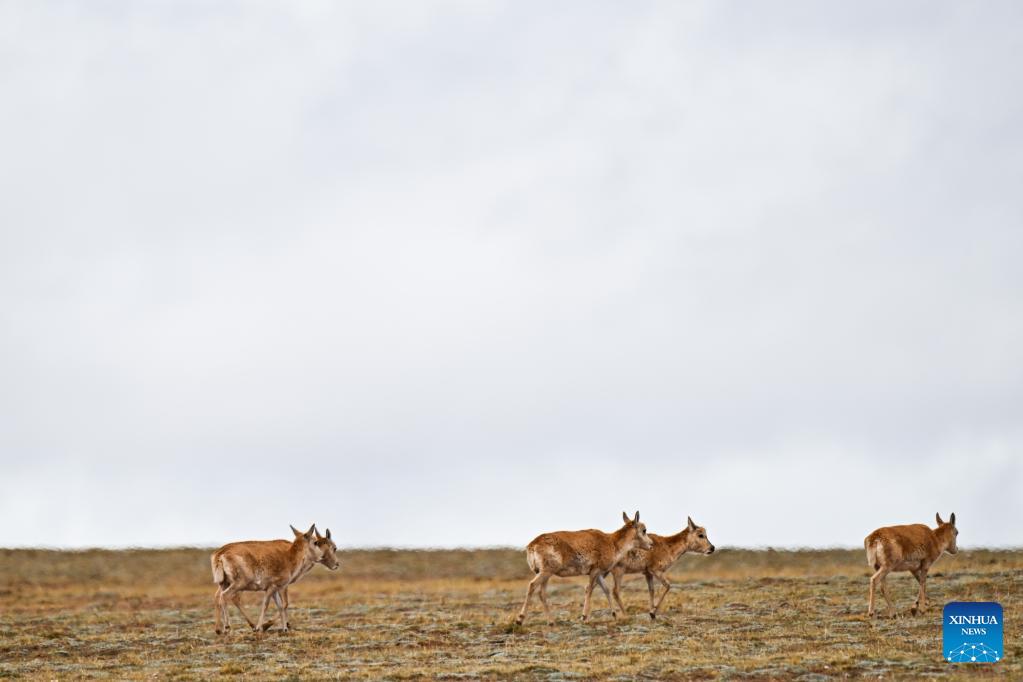

Tibetan antelopes migrate in Wudaoliang area in Hoh Xil, northwest China's Qinghai Province, May 27, 2024. [Photo/Xinhua]
style="text-align: left; margin-bottom: 15px;">The peak season for the migration of Tibetan antelopes to the heart of northwest China's Hoh Xil National Nature Reserve to give birth has arrived, according to the Hoh Xil reserve administration.
Every year, tens of thousands of pregnant Tibetan antelopes migrate to Hoh Xil between May and July to give birth, while they will leave the area together with their offspring in August. Zonag Lake at the heart of Hoh Xil is known as the "delivery room" of this species.
"The migration of Tibetan antelopes this year started on May 7, and it has entered the peak period. At its peak, more than 800 Tibetan antelopes cross the Qinghai-Xizang Highway each day," said Karma Yingphel, deputy director of the Wudaoliang protection station of the Hoh Xil reserve administration.
During the migration of Tibetan antelopes, members of the Wudaoliang protection station continue to patrol along the Qinghai-Xizang Highway. Those on patrol use telescopes to visually measure the distance between Tibetan antelopes and the highway, wait for Tibetan antelopes to get near, and then intercept vehicles on the highway, thereby allowing Tibetan antelopes to safely cross the Qinghai-Xizang Highway while vehicles are stationary.
More than 2,500 female Tibetan antelopes have passed through the Wudaoliang area of the Qinghai-Xizang Highway so far this year, according to the administration. "Thanks to traffic control, vehicles and tourists can consciously be kept away from migrating Tibetan antelopes. With our explanation of this need, everyone expressed their understanding," said a member of the patrol staff at Wudaoliang protection station.
Under first-class state protection in China, the once-endangered Tibetan antelope is mostly found in the Xizang Autonomous Region, Qinghai Province, and the Xinjiang Uygur Autonomous Region. Their population has increased over the past three decades thanks to a ban on illegal hunting and measures implemented to improve their habitat.
